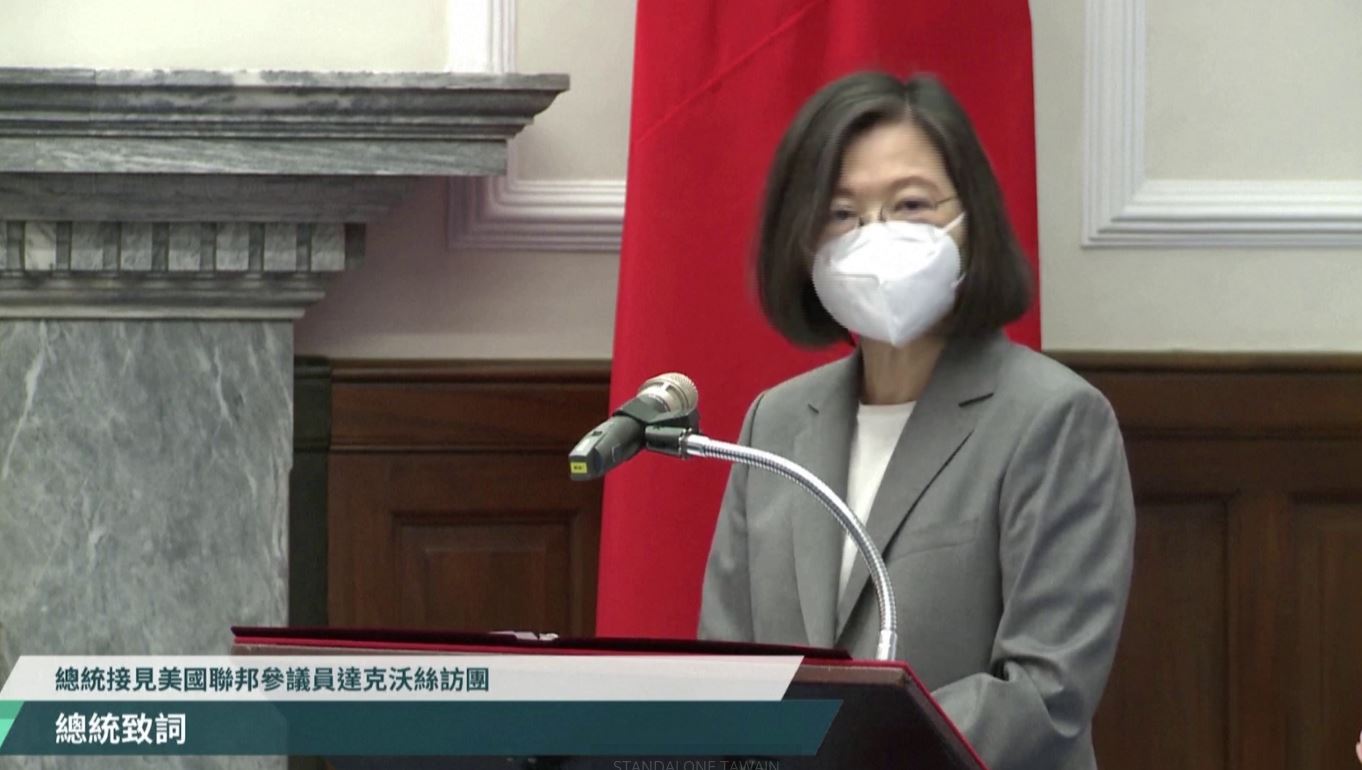INTERNATIONAL: The U.S. State Department has updated its fact sheet on Taiwan again, to reinstate a line about not supporting formal independence for the Chinese-claimed, democratically-governed island.
TAIPEI, June 3 Last month the State Department changed the wording on its website on Taiwan, removing wording both on not supporting Taiwan independence and on acknowledging Beijing's position that Taiwan is part of China, to anger in Beijing.
Washington said the update did not reflect a change in policy. That wording has now been changed again, to reinstate a line saying "we do not support Taiwan independence".
The change was first reported by Taiwan's official Central News Agency on Friday, and appears to have happened on May 28, the date at the top of the fact sheet.
The State Department did not immediately respond to a request for comment.
State Department Spokesman Ned Price had said in May that the United States does not support Taiwan independence and "we have repeatedly made this clear both in public and in private".
Taiwan is already a de facto independent state, though with only very limited international recognition. Washington has no formal ties with Taipei, but is its most important international backer and arms supplier.
Taiwan's official name remains the Republic of China, the name of the government that fled to the island in 1949 after losing a civil war with the Communist Party who set up the People's Republic of China with its capital in Beijing.
The Chinese government in 2005 passed a law giving Beijing the legal basis for military action if it judges Taiwan to have seceded or to be about to.
Taiwan's government says only the island's 23 million people have the right to decide their future, and while it wants peace will defend itself if attacked.
The United States and Taiwan announced the U.S.-Taiwan Initiative on 21st Century Trade on Wednesday, days after the Biden administration excluded the Chinese-claimed Island from its Asia-focused economic plan designed to counter Beijing's growing influence.
China "firmly" opposes a new trade initiative between Taiwan and the United States, the Commerce Ministry said on Thursday, a plan the government in Taipei says is recognition of the key position the island plays in global supply chains.
Beijing opposes any form of official contact between Taiwan and other countries, including negotiating and signing any economic and trade agreements "with sovereign connotations and of an official nature", Gao told an online briefing
U.S. President Joe Biden saying on Monday (May 23) that he would be willing to use force to defend Taiwan against Chinese aggression. Can US have it both ways? We will defend a country we won’t recognize against a country that owns it.
Biden made a similar comment in October, saying "Yes, we have a commitment to do that" when asked if the United States would come to the defense of Taiwan. At that time, a White House spokesperson said Biden was not announcing any change in U.S. policy and one analyst referred to the comment as a "gaffe".
Taiwan will keep on fighting for their civil rights and its own identity.
China's foreign ministry said on Monday 23rd May that the U.S. should not defend Taiwan independence, after U.S. President Joe Biden said Washington would defend Taiwan militarily if Beijing invaded the self-governed island.
China has no room for compromise or concessions on matters relating to its sovereignty and territorial integrity, foreign ministry spokesperson Wang Wenbin told a regular news briefing in Beijing.
"No one should underestimate the Chinese people's firm resolution, will and capability to defend its national sovereignty and territorial integrity and should not stand against the 1.4 billion Chinese people," Wang said.
PHOTO: MEETING BETWEEN TAIWAN PRESIDENT, TSAI ING-WEN, AND VISITING U.S. SENATOR, TAMMY DUCKWORTH / SOUNDBITES FROM TSAI TALKING ABOUT SECURITY COOPERATION / SOUNDBITE FROM DUCKWORTH TALKING ABOUT U.S. SUPPORT FOR TAIWAN






















